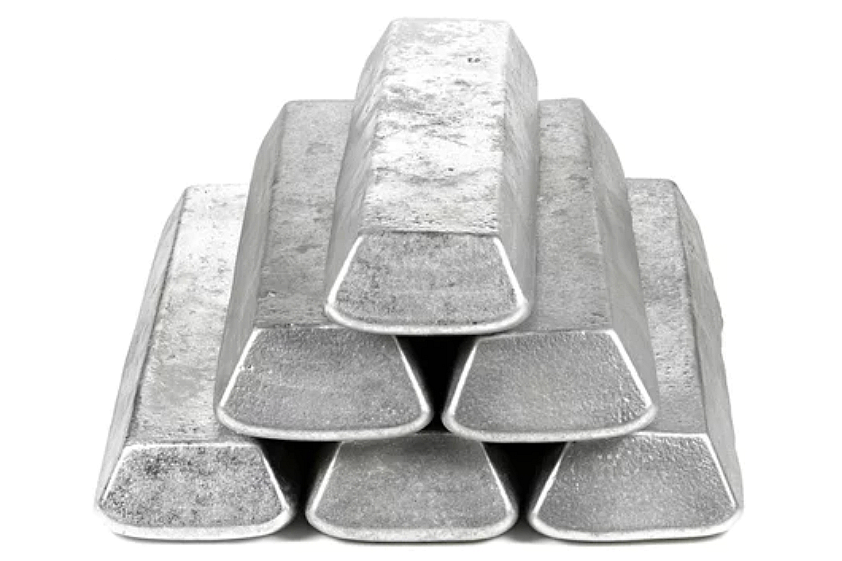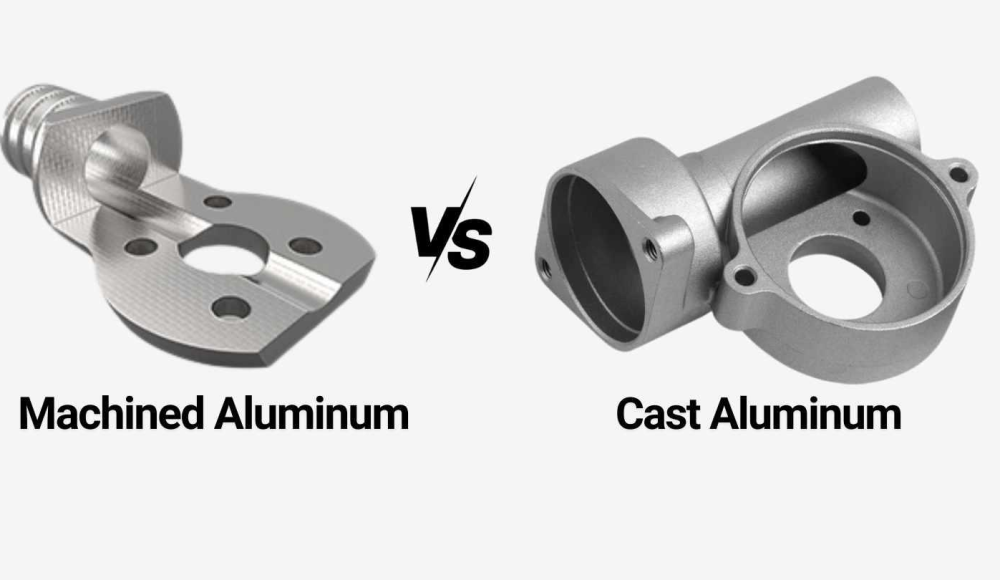Discovering the Duty of Shop Providers in Progressing Modern Design Solutions
Foundry services are important in forming modern engineering options - Aluminum Foundry. They bridge the space in between standard production techniques and the demands of contemporary markets. With advancements in automation and sustainability, factories are advancing to satisfy the requirements of markets such as aerospace and vehicle. This makeover raises questions about the implications for materials, processes, and future developments. What challenges and chances exist in advance for shop services in this swiftly changing landscape?
The Evolution of Shop Providers in Design

The combination of computer-aided layout (CAD) and simulation software has revolutionized the layout and production processes, enabling foundries to create intricate geometries with higher precision. The shift towards environment-friendly techniques has led to the adoption of greener modern technologies and recycling initiatives within factories. As sectors increasingly focus on modification and rapid prototyping, foundry services have actually expanded their capabilities, ensuring they remain vital contributors to the design landscape. This development highlights the foundry's crucial duty in sustaining improvements throughout numerous fields, including auto, aerospace, and energy.
Key Processes and Techniques in Modern Foundries
Modern foundries employ a variety of key procedures and strategies that improve the efficiency and quality of steel casting. Amongst these, sand spreading continues to be widespread because of its flexibility and cost-effectiveness. The use of sophisticated modern technologies, such as computer-aided layout (CAD) and computer-aided manufacturing (WEB CAM), allows for accurate modeling and production, making certain high precision in component dimensions. Furthermore, investment spreading is favored for producing complex geometries with excellent surface area coatings.
Automation and robotics boost production speed and uniformity while decreasing labor costs. Techniques like additive manufacturing are significantly integrated to produce detailed mold and mildews and cores, thereby lessening material waste. The application of thermal evaluation aids in enhancing spreading procedures by predicting and regulating solidification habits. Collectively, these methods and processes exemplify exactly how modern-day shops are adjusting to meet the needs of modern engineering difficulties, making sure exceptional product high quality and operational effectiveness.
The Importance of Products Choice in Shop Services
Selecting the suitable products is vital in foundry solutions, as it directly affects the mechanical residential properties, sturdiness, and overall efficiency of the end product. Different materials have one-of-a-kind characteristics, such as tensile strength, corrosion resistance, and thermal stability, which need to align with the desired application of the cast elements. Metals like aluminum and steel are typically selected for their strength-to-weight proportion, while alloys can boost certain performance traits.
The choice procedure includes taking into consideration factors such as manufacturability, expense, and accessibility, which can especially influence job timelines and spending plans. Furthermore, advancements in material science enable the growth of innovative composites and specialized alloys that cater to arising engineering difficulties. Consequently, a detailed understanding of product residential or commercial properties and their implications is crucial for designers and shop experts to achieve effective outcomes in their projects. This cautious selection process eventually boosts the reliability and efficiency of completion items.
Foundry Services in Aerospace and Automotive Applications
Factory solutions play an essential function in the aerospace and auto industries, where accuracy and performance are paramount. These industries depend greatly on the manufacturing of complicated elements that should satisfy strenuous high quality standards and stand up to severe conditions. Factories give crucial services such as casting, machining, and completing, ensuring components are lightweight yet robust, necessary for enhancing fuel efficiency and security.
In aerospace, factory solutions add to the manufacturing of generator blades, engine parts, and architectural components, every one of which need intricate designs and high-performance materials. Likewise, in the automotive sector, foundries supply engine blocks, chassis parts, and transmission cases, concentrating on sturdiness and weight decrease.
Advanced shop strategies, consisting of additive production and precision spreading, are significantly employed to fulfill the details needs of these sectors. By supplying customized remedies, foundry solutions aid drive innovation and maintain affordable benefits in the fast-evolving aerospace and automotive landscapes.
Technologies Driven by Shop Capabilities
Many innovations in design are fueled by the sophisticated capabilities of factory solutions. These services allow the production of intricate geometries and high-performance materials that are vital for modern applications. Additive manufacturing, frequently recognized as 3D printing, has seen significant developments via foundry techniques, permitting for the rapid prototyping of elaborate designs. Furthermore, the ability to cast light-weight alloys has changed sectors such as aerospace and automobile, leading to enhanced fuel effectiveness and performance.
In addition, factories are significantly integrating wise look these up technologies, such as automation and information analytics, to boost production performance and quality assurance. These advancements not just minimize waste yet also enable modification at range, meeting the certain demands of clients. By leveraging advanced shop abilities, designers can check out brand-new frontiers in product style and performance, inevitably driving progress throughout numerous fields and developing a foundation for future improvements.
Future Patterns in Shop Providers and Engineering Solutions
The future of factory services is shaped by emerging trends such as lasting production techniques, which focus on ecological responsibility. Automation and smart modern technologies are set to enhance effectiveness and precision, while enhancing personalization and flexibility will certainly satisfy the evolving needs of customers. As these fads advance, they will certainly redefine the landscape of design solutions in the shop market.
Sustainable Production Practices
As markets increasingly focus on environmental responsibility, lasting manufacturing practices within shop services are coming to be necessary to contemporary engineering services. These techniques concentrate on decreasing waste, reducing power consumption, and making use of eco-friendly products throughout the production procedure. By executing strategies such as recycling scrap steel and optimizing melting procedures, foundries can significantly lower their carbon footprint. Additionally, the adoption of life cycle assessments permits makers to assess the ecological impact of their products from creation to disposal. Working together with vendors dedicated to sustainability even more boosts the performance of these campaigns. Eventually, embracing sustainable production not just lines up with global environmental goals but likewise cultivates advancement and competitiveness in the quickly evolving engineering landscape.
Automation and Smart Technologies
While several industries are embracing technological improvements, foundry services are experiencing a substantial transformation through automation and clever modern technologies. The assimilation of robotics and automated systems improves production performance, minimizes human mistake, and increases the manufacturing procedure. Smart innovations, such as IoT and AI, allow real-time surveillance and predictive maintenance, which enhance operational performance and minimize downtime. These advancements facilitate data-driven decision-making, permitting factories to respond quickly to market needs and improve product high quality. In addition, automation reduces labor costs and improves work environment security by taking Extra resources care of hazardous tasks. As factory services remain to embrace these innovations, they are positioned to redefine design remedies, resulting in enhanced competitiveness and sustainability in the production sector.
Personalization and Versatility Fads
Arising trends in shop solutions increasingly stress personalization and versatility to fulfill one-of-a-kind customer needs. This change mirrors a wider need for tailored engineering solutions that adjust to particular project requirements and industry criteria. Business are investing in innovative modern technologies, such as additive production and electronic modeling, allowing them to generate personalized parts effectively and cost-effectively. Therefore, shops are relocating away from one-size-fits-all techniques, providing customers the ability to customize designs and products in real-time. Furthermore, partnership in between engineering groups and shop solutions is becoming a lot more integrated, cultivating development and accelerating time-to-market. This fad not only boosts product performance yet additionally supports sustainability by decreasing waste with accurate manufacturing procedures.
Often Asked Questions
What Are the Typical Prices Connected With Factory Providers?
Typical costs linked with shop services include product expenses, labor fees, devices use charges, and expenses expenses - aluminum casting. These expenses can vary extensively based on task complexity, volume, and details demands of the engineering option entailed
For how long Does the Factory Refine Typically Take?
The factory procedure typically takes anywhere from numerous weeks to a few months, relying on elements such as complexity, material demands, and manufacturing quantity, which can considerably affect timelines and overall project delivery.
What Industries Advantage A Lot Of From Factory Solutions?
Industries such as automobile, aerospace, and building and construction benefit significantly from shop services. These industries count on accuracy spreading and steel construction to create intricate parts, improving product efficiency and operational efficiency in their particular applications.
What Certifications Should Shops Possess?
Foundries should possess qualifications such as ISO 9001 for high quality click over here monitoring, ISO 14001 for ecological monitoring, and particular industry certifications like AS9100 for aerospace or IATF 16949 for automotive, making sure conformity and quality control.
Exactly How Do Foundries Guarantee Quality Assurance in Their Procedures?

Shop services are crucial in shaping modern-day engineering solutions. As design self-controls have progressed, the function of foundry solutions has actually transformed significantly to fulfill progressing market demands. As sectors increasingly prioritize customization and quick prototyping, factory services have broadened their capabilities, guaranteeing they remain essential contributors to the design landscape. As sectors increasingly focus on ecological responsibility, lasting manufacturing methods within foundry services are ending up being crucial to modern-day design remedies. Furthermore, collaboration in between engineering teams and shop solutions is becoming much more incorporated, fostering innovation and increasing time-to-market.